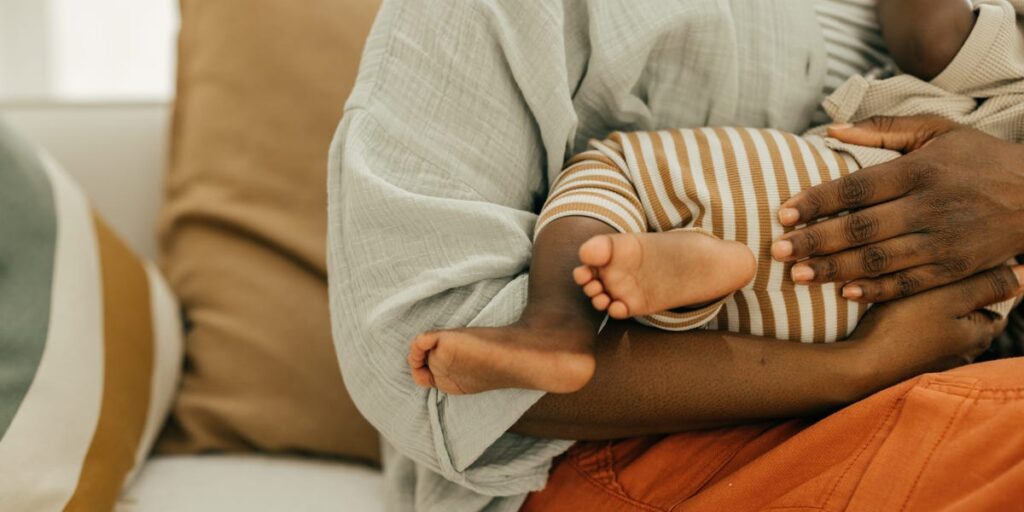When I had my first child at 45, I thought I was ready.
I had financial stability, a solid career, and years of life experience to guide me. I’d traveled the world, built a life I loved, and taken my time before deciding I wanted to be a mother.
What I hadn’t accounted for was the strange dissonance of parenting in middle age — the unexpected joys, the quiet insecurities, and the ever-present awareness of time.
In many ways, parenting later in life has been a gift. I’m more patient than I would have been in my 30s. The things that might have rattled me back then — toddler meltdowns in the middle of the grocery store, sleepless nights, the sudden loss of personal freedom — don’t shake me as much. I’ve lived enough life to know that everything is temporary. The tough phases pass, just as the sweet ones do.
But there are also quiet, nagging fears that creep in during those late-night rocking-chair moments. I do the math in my head: When my child is 20, I’ll be 65. Will I be around to see them get married? Have kids of their own? Will I be the oldest mom at every PTA meeting, the one who gets mistaken for a grandmother at the playground?
There are both pros and cons to being an older mom
A few weeks after my child was born, I stood in line at a coffee shop, my newborn strapped to my chest. The woman in front of me, holding the hand of a chattering 3-year-old, turned and smiled.
“Your grandbaby is beautiful,” she said. I opened my mouth to correct her but stopped. I wasn’t offended. Just…surprised. Was this how the world would see me?
Most of the moms I meet at playgroups and day care pickup are at least a decade younger than I am. They seem to have boundless energy, effortlessly hoisting their toddlers onto their hips, chasing them through parks, and balancing motherhood with the kind of social life I vaguely remember from my 30s. I sometimes feel like I exist in a different realm — closer to their mothers’ age than to their own.
While I may not have their stamina, I do have perspective. I don’t stress as much about hitting every milestone at the “right” time. I don’t compare my child’s progress to others. I trust my instincts more because I’ve spent years learning to trust myself. And I don’t feel the same pull toward proving anything to anyone — I’ve already had my career successes, my wild adventures. This stage of life, this season of slow mornings with a toddler curled in my lap, feels like a reward rather than a detour.
There is, however, the undeniable reality of my body not bouncing back the way I’d imagined. While my younger mom-friends seemed to have snapped back into shape weeks after birth, my body held onto the weight like a stubborn keepsake. I’d wake up with stiff joints after a night of rocking my baby, and exhaustion felt deeper, more bone-weary than I expected.
And then there was the cruel irony of parenting while navigating perimenopause. Hormonal mood swings paired with toddler tantrums? A comedy of errors. Some days, I wasn’t sure who needed the nap more — me or my child.
Still, my body, despite its protestations, has adapted. It has learned to carry, to soothe, to endure. And though I may not have the same physical resilience as younger mothers, I bring a different kind of strength — a patience forged by time, a steadiness that comes from knowing that no phase, good or bad, lasts forever.
I don’t believe there’s a perfect time to become a parent
Motherhood is often framed as something that should happen by a certain age as if there’s an expiration date on our ability to love and nurture a child. I’ve had well-meaning friends say things like, “I don’t know how you do it at your age,” as if 45 is ancient. The truth is, I don’t feel old. And I refuse to accept the idea that love, patience, and the capacity to raise a child belong only to the young.
If there’s one thing I’ve learned, it’s this: There is no perfect time to become a parent. There is only the time that life gives you and what you choose to do with it.
I don’t know how many years I’ll have with my child, but none of us really do, no matter our age. What I do know is that I will make those years count. I will be present. I will love fiercely. And I will embrace the unique beauty of being an older mom — not as a limitation, but as a gift.
Because in the end, it’s not about when we become parents. It’s about how we show up, day after day, in the lives of the little ones who call us Mom.
Read the full article here
















